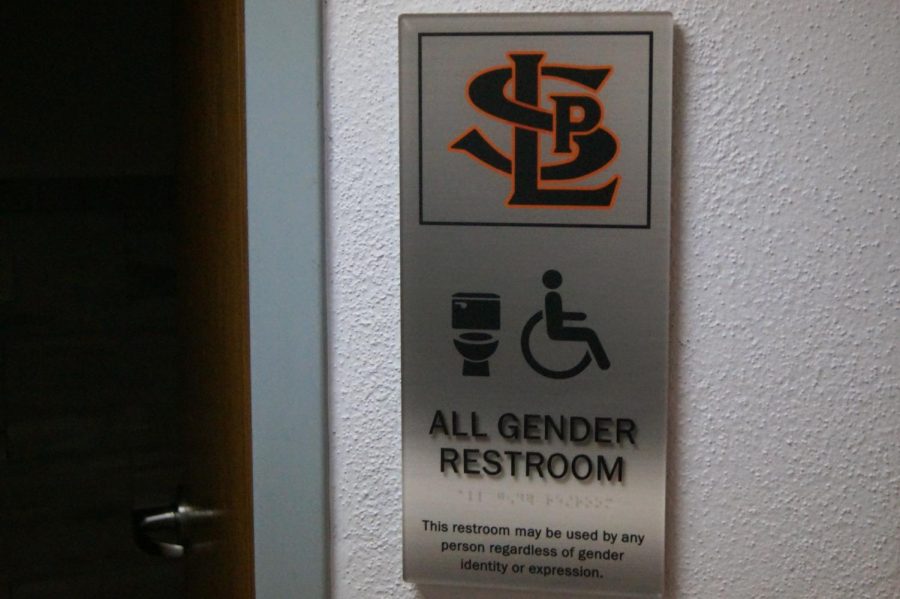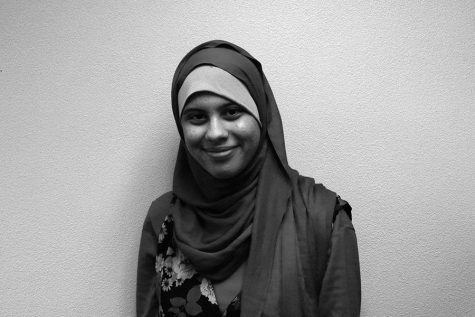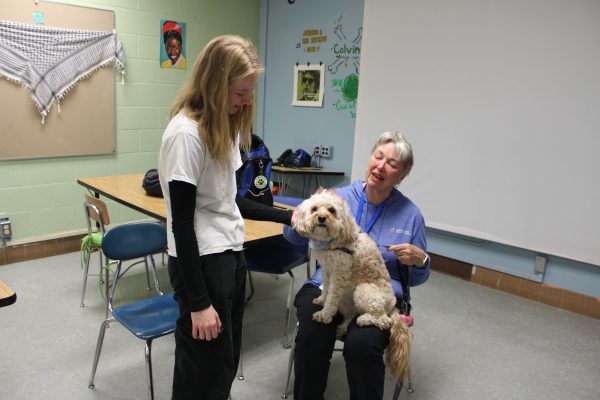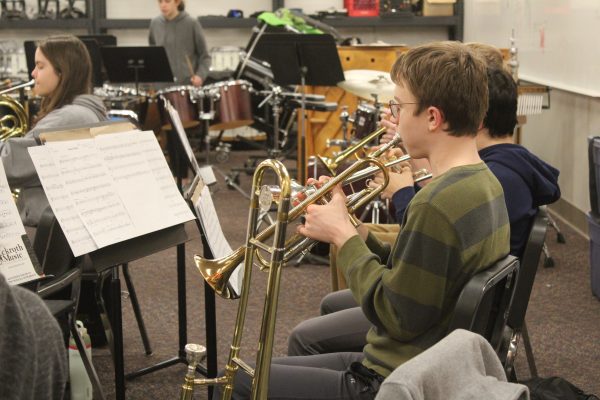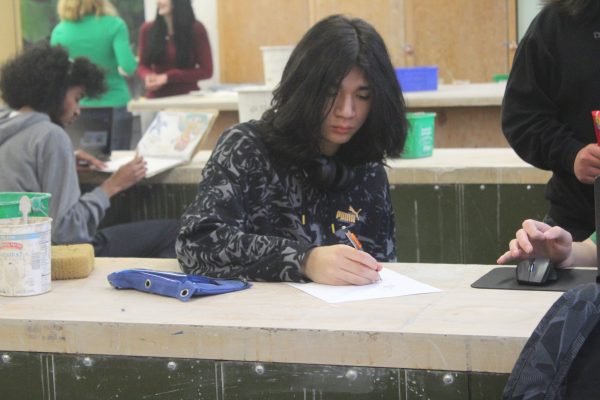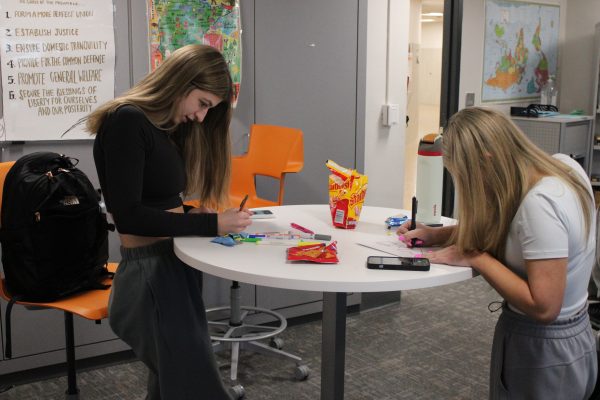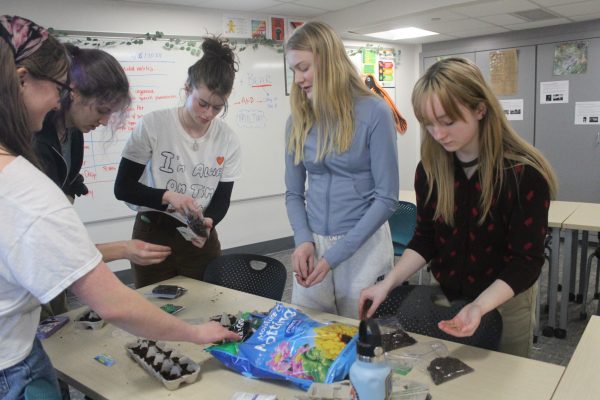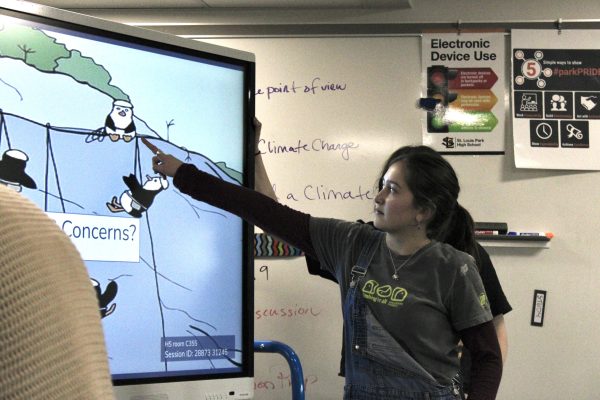GSA works on gender inclusion policy
Current project focuses on equality, less stigma
All-gender restrooms are a part of the GSA’s policy initiative. There are presently two unisex restrooms in the high school, one in the B1 hallway and the other in the At-Large lab.
January 11, 2018
When junior Chris Audette first heard about Gender Sexuality Alliance’s new gender inclusion policy, he knew it would be a great opportunity for students to become more aware of transgender and intersexual values.
“Maybe with transgender (people) like myself, the policy would make me feel more included in the school, personally, and a lot of my friends as well,” Audette said. “It would make me feel more safe going to the restroom and make teachers more aware of how to treat transgender students.”
Sophomore Euan Lim said he feels everyone’s identities matter and it is important for an academic environment to remain a safe space for students to express themselves.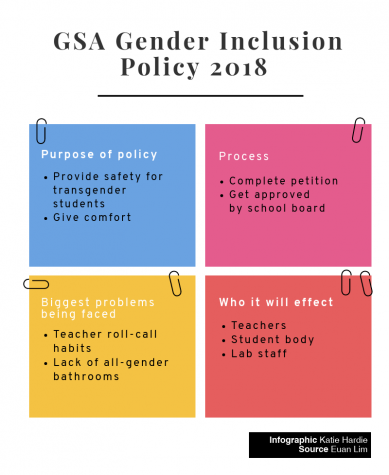
“It’s important because if people don’t feel comfortable at school then they might not learn as well, and that can cause them to fall behind and not have the same chances as the people who do feel comfortable,” Lim said.
According to sophomore member of GSA Dayna Krause, the policy the group is working on hopes to help transgender and gender non-conforming students feel supported.
“One of the main goals is to add additions such as all gender locker rooms and more support systems,” Krause said. “We would have specialty courses to train teachers so that they can learn how to properly address students so they would use the correct pronouns and names.”
According to GSA adviser Kyle Sweeney, this policy is especially important because of the world we live in.
“The political climate is so questionable about what rights people have, and how do we protect marginalized students,” Sweeney said. “So the GSA has been kind of pushing this (policy) for a couple of years.”
Krause said the policy is inspired by a Minnesota policy and a desire to set a good example.
“It’s similar to the A Toolkit for Ensuring Safe and Supportive Schools for Transgender and Gender Nonconforming Students, which is (a policy) that Minnesota goes by, but we wanted to make St. Louis Park a sort of pioneer city,” Krause said. “ We wanted to be the ones to start more transgender rights and start more systems to help them.”
According to Sweeney, attendance customs in public schools remain one of the biggest reasons for introducing this policy.
“I think that one of the most important things is for teachers to have the training on how to respond,” Sweeney said. When you take attendance, the first day of school, calling people’s last names instead of their first names so you don’t use a name someone doesn’t use, little details like that are so important. Also many staff have started to ask, ‘which pronouns do you use?’, which I think is also a big step.”
Audette said people shouldn’t be afraid of asking questions because it is sometimes better than the alternative.
“If people want to ask about preferred pronouns and such, it’s not weird to go up and ask somebody about (these) pronouns,” Audette said. “It’s actually better than accidentally misgendering somebody.”
Sweeney said a cisgender person has many liberties that most don’t even realize they have.
“A cisgender person is automatically assumed to be normal,” Sweeney said. “A cisgender person gets to be themselves without ever having to explain themselves or ever having to question it, without ever having people make mistakes on who they are, or that part of their identity. That’s a big freedom.”
Sweeney said the policy hopes to increase awareness of how to handle situations and consequences for not handling things well
(The policy would affect the level of) awareness that staff and students have about what (the issues) are, you know some people don’t know what intersex or the difference between binary or gender nonconforming,” Sweeney said. “Teachers and students wouldn’t be able to ignore or misgender people. And if they did do that, there would be some sort of consequence.”
Lim said GSA is still working through the details of the policy.
“It’s not a public thing right not because we don’t want to deal with all the negativity and the pushback, and we are still figuring it out,” Lim said.
According to Krause, GSA is currently working on a draft of the policy with local human rights group Allies of St. Louis Park , who supports their efforts in passing the policy.
Audette said the policy is a step in the right direction for the transgender and intersexual community in terms of what has been going on in public schools.
“Without the policy, people don’t realize the effects (of) what’s going on in the transgender community and how we don’t feel accepted at the school and I think (the policy) makes people more aware,” Audette said.



